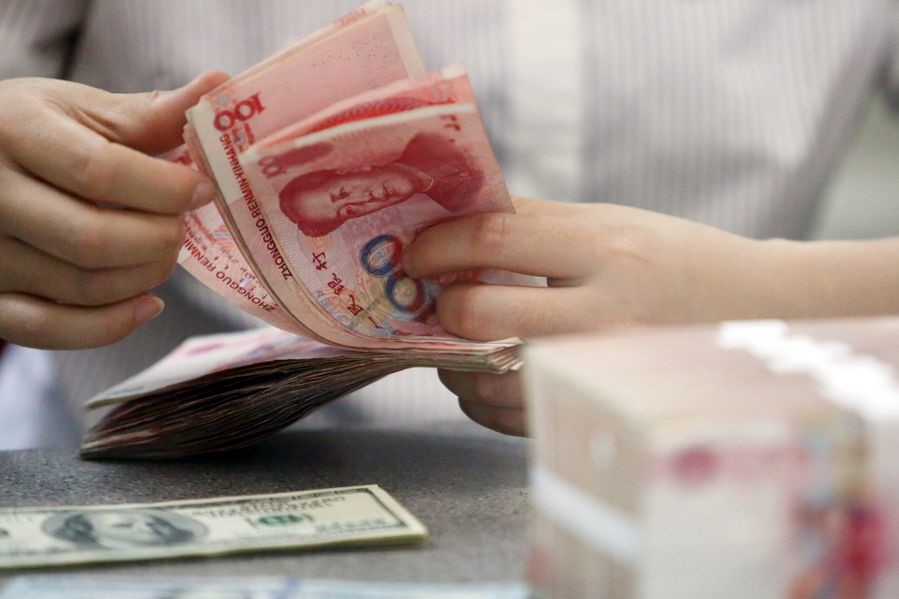Data from the People\’s Bank of China, the country\’s central bank, showed that China\’s yuan deposits totaled 26.26 trillion yuan ($3.77 trillion) in 2022, up 6.59 trillion yuan year-on-year. Household deposits increased 17.84 trillion yuan, 7.94 trillion yuan more than in 2021.
A survey of more than 20,000 people in 2021 indicated that the younger generation, or people aged between 18 and 34, think it is important to save money for the future, and the amount of their income that went towards savings hit a new high since 2018.

A worker counts Chinese currency renminbi at a bank in Linyi, East China\’s Shandong province. (Photo/Xinhua)
Seventy-six percent of those surveyed said they would put more money in the bank to better prepare for uncertainties.
Young people have developed their own painless ways of saving money, such as putting away only a small amount of money each time and setting an easy goal of saving money.
Chen Yanbin, executive vice dean of the graduate school of Renmin University of China, attributed the excess household savings to uncertainties in people\’s income growth amid the COVID-19 pandemic.
After paying off her 60,000 yuan debt, Mo Xing, a pseudonym, started to realize the importance of saving money. Prior to this, she had job-hopped three times, including being laid off during her probation period at a real estate agency.
To save money, Mo made a list of all the stuff she may use, categorized them and stopped buying things she didn\’t really need. She also removed shopping apps from her phone to cut back on nonessential spending.
Dong Ximiao, the chief researcher at Merchants Union Consumer Finance Company Limited, said the percentage of household savings in total yuan deposits in China was highest at 60.4 percent in the third quarter of 1995 and then subsided as a result of the rapid development of the economy, people\’s rising awareness of investment and financial management, and an abundant supply of financial products. In 2017, that figure dropped to 39.2 percent.
The percentage of household savings in total yuan deposits in China started to rebound in 2018 and reached 45.4 percent in the first quarter of 2022. Dong said this shows that the rapid growth in household savings and its rising share of total deposits have started to become a long-term trend.
\”Saving money needs a sense of ritual,\” said Bai Wenxin, a pseudonym, who works in the pharmaceutical industry. Bai plans to put 50,000 yuan in the bank in 2023 and has created a plan to achieve that goal.
Mo achieved her first goal of depositing 50,000 yuan before the Spring Festival 2023, which fell in late January. She ordered wedding photography and physical examination services for her parents using that money. After the holiday, her deposits shrank to less than 10,000 yuan, but she thought the money was well spent.
\”I wanted to spend the money on my parents and I found a sense of satisfaction being able to do so with the money that I saved,\” the woman said.
